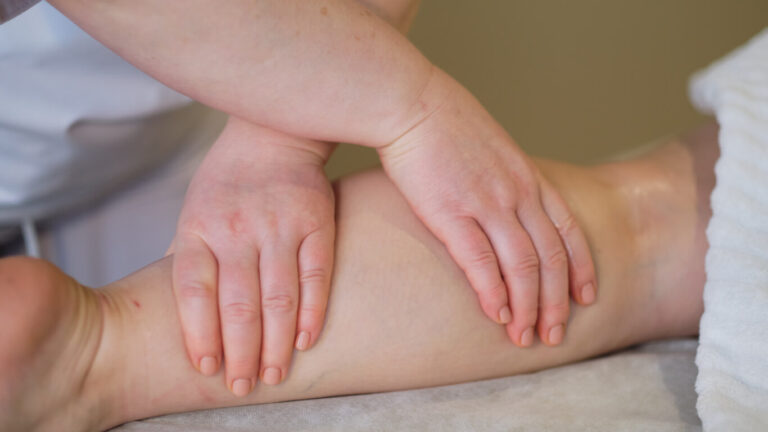Lymphedema Diet
Lymphedema Diet: Best Foods to Reduce Swelling and Support Lymphatic Health
Lymphedema is more than just swelling; it’s a chronic condition that can significantly affect quality of life. Whether new to managing lymphedema or seeking expert advice, this guide offers actionable insights into the best foods to reduce swelling and support lymphatic health. Ready to make some positive changes to your diet? Let’s dive in!

What is Lymphedema? Understanding the Basics
Lymphedema occurs when lymph fluid accumulates in the tissues, leading to swelling, most commonly in the arms or legs. It can result from surgery, cancer treatments, or other conditions affecting the lymphatic system.
Why Diet Matters in Lymphedema Management
While lymphedema is not cured, dietary adjustments can help manage symptoms. The right foods can reduce inflammation, improve lymphatic circulation, and minimize swelling.
Key Dietary Principles for Lymphedema
Before jumping into specific foods, let’s establish foundational principles to guide your choices.
- Focus on Anti-Inflammatory Foods
Inflammation worsens swelling. Choosing anti-inflammatory foods is crucial for lymphatic health.
- Stay Hydrated
Proper hydration keeps lymph fluid flowing efficiently and prevents it from pooling in tissues.
- Limit Processed Foods
Highly processed foods can increase inflammation and fluid retention, making symptoms worse.
Best Foods for Lymphedema: A Comprehensive Guide
What should you add to your plate to support lymphatic health? Let’s explore.
- Fruits and Vegetables: Nature’s Anti-Inflammatories
Top Choices
- Berries: Blueberries, raspberries, and strawberries are rich in antioxidants that fight inflammation.
- Leafy Greens: Spinach, kale, and arugula provide vitamins A, C, and K for lymphatic support.
- Citrus Fruits: Oranges, lemons, and grapefruits boost vitamin C, strengthening blood vessels.
Why They Help
Fruits and vegetables are high in fibre, antioxidants, and water content, aiding digestion and reducing swelling.
- Lean Proteins: Fuel for Healing
Top Choices
- Fish: Salmon, mackerel, and sardines are rich in omega-3 fatty acids.
- Poultry: Skinless chicken and turkey are excellent sources of lean protein.
- Plant-Based Options: Lentils, chickpeas, and tofu.
Why They Help
Proteins repair tissues and strengthen the immune system, essential for managing lymphedema.
- Healthy Fats: Essential for Lymphatic Function
Top Choices
- Avocados: Packed with monounsaturated fats and potassium.
- Nuts and Seeds: Almonds, walnuts, flaxseeds, and chia seeds.
- Olive Oil: A staple in anti-inflammatory diets like the Mediterranean diet.
Why They Help
Healthy fats reduce inflammation and improve cellular health, supporting lymphatic flow.
- Whole Grains: Fiber for Better Digestion
Top Choices
- Quinoa: High in protein and fibre.
- Brown Rice: A great alternative to refined grains.
- Oats: Perfect for a fibre-packed breakfast.
Why They Help
Fibre improves digestion and prevents constipation, which can exacerbate lymphatic congestion.
- Herbs and Spices: Natural Remedies
Top Choices
- Turmeric: It contains curcumin, a powerful anti-inflammatory.
- Ginger: Promotes circulation and reduces swelling.
- Parsley: Acts as a natural diuretic.
Why They Help
These herbs and spices enhance flavour while offering therapeutic benefits for lymphatic health.
- Fluids: Hydration is Key
Top Choices
- Water: The ultimate hydration source.
- Herbal Teas: Dandelion and green tea help reduce water retention.
- Coconut Water: A natural electrolyte booster.
Why They Help
Adequate hydration ensures proper lymphatic drainage and reduces the risk of fluid buildup.
Foods to Avoid with Lymphedema
Knowing what to avoid is just as important as knowing what to eat.
- Salty Foods
Excess salt causes water retention and worsening swelling.
- Sugary Snacks
High sugar intake can lead to inflammation and weight gain.
- Trans Fats
Found in fried foods and baked goods, trans fats promote inflammation.
- Alcohol
Alcohol dehydrates the body, hindering lymphatic function.
Sample Lymphedema-Friendly Meal Plan
Here’s a sample day of eating to inspire your lymphatic health journey.
Breakfast
- Greek yoghurt with blueberries, chia seeds, and a drizzle of honey.
- Herbal tea or water.
Lunch
- Grilled salmon salad with spinach, avocado, and lemon dressing.
- A slice of whole-grain bread.
Snack
- A handful of walnuts and an orange.
Dinner
- Quinoa with roasted chicken, steamed broccoli, and turmeric-seasoned carrots.
Dessert
- A small bowl of fresh strawberries.
Lifestyle Tips to Complement Your Diet
Pairing dietary changes with lifestyle adjustments can amplify results.
- Exercise Regularly
Gentle exercises like walking, yoga, and swimming encourage lymphatic circulation.
- Wear Compression Garments
Compression garments reduce swelling and improve lymphatic flow.
- Practice Lymphatic Massage
Manual lymphatic drainage can relieve fluid buildup.
- Avoid Sitting for Long Periods
Stay active throughout the day to prevent lymph stagnation.
Current Trends in Lymphedema Diets for 2025
In 2025, the focus is shifting toward personalized nutrition. Innovations include:
- DNA-Based Diets: Tailoring dietary plans to genetic predispositions.
- Microbiome-Friendly Foods: Supporting gut health to improve overall inflammation.
- Plant-Based Lifestyles: Increasing reliance on whole, plant-based foods for lymphatic health.
Conclusion: Nourish Your Lymphatic System
Managing lymphedema starts with your plate. You can reduce swelling and improve lymphatic health by choosing anti-inflammatory foods, staying hydrated, and avoiding triggers. Combine these dietary strategies with an active lifestyle for optimal results.
FAQs
- What are the best fruits for lymphedema?
Berries, citrus fruits, and water-rich fruits like watermelon are excellent for reducing inflammation and supporting hydration.
- Can drinking more water reduce lymphedema swelling?
Yes! Staying hydrated helps maintain lymphatic flow and reduces fluid retention.
- Are there specific diets for lymphedema?
While there’s no one-size-fits-all diet, anti-inflammatory and low-sodium diets are commonly recommended.
- Can weight loss help with lymphedema?
Maintaining a healthy weight can reduce pressure on the lymphatic system and alleviate symptoms.
- Is caffeine bad for lymphedema?
Excess caffeine can dehydrate the body, so moderate your intake and prioritize hydrating beverages.
